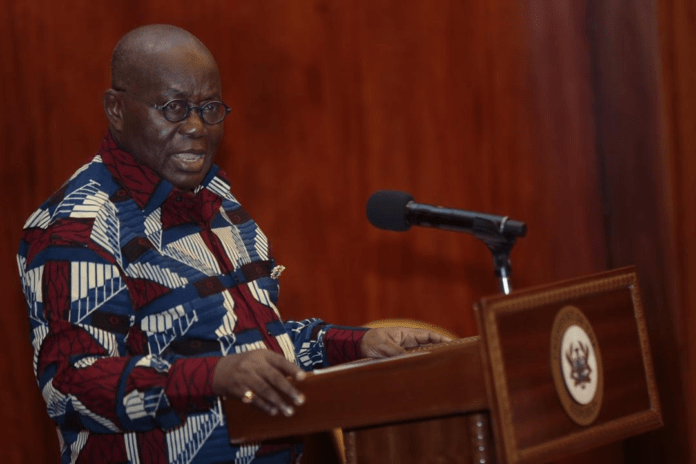
The President’s decision to lift the lockdown in some four cities in the country despite a scary jump in cases of infection was driven by political data and not scientific data.
The announcement should be seen as a temporal victory for both the economy and politics and not Ghanaians and science.
The World Health Organisation (WHO) has cautioned nations to lift lockdown restrictions slowly and not “all at once” in order to avoid the rapid spread and resurgence of the coronavirus. WHO boss, Dr Tedros Adhanom Ghebreyesus has been clear that stringent rules can be relaxed if appropriate measures are put in place.
Dr Adhanom Ghebreyesus unequivocally stated that: “while Covid-19 accelerates very fast, it decelerates much more slowly.”
United States (US) President Donald Trump announced last Wednesday that he will unveil plans to reopen the economy, claiming the United States has “passed the peak” of coronavirus cases. In less than 24 hours after his tweet, the US logged a record number of 2,500 deaths. The reaction from the American scientific community was immediate as it warned that lifting the lockdown will increase infection across the country.
German Chancellor, Angela Merkel has similarly urged “extreme caution” when she announced initial steps to reopen some shops and gradually restart school in the European country.
But with a total of 1,042 cases of coronavirus infection, Ghana has lifted its three-week lockdown of some four cities. These cities – Accra, Tema, Kasoa and Kumasi – were placed under lockdown at a time when the country had fewer than 30 cases of infection.
The hardship brought upon residents of these areas, especially the vulnerable and disabled has been well-documented by colleague journalists. Although aggressive and harsh, the lockdown forms part of a few options available at the moment that have proven useful in stopping the rapid spread of coronavirus across the world.
President Nana Addo Dankwa Akufo-Addo has repeatedly said his government’s reaction to the coronavirus situation in the country is backed by science and data.
“The decision to impose restrictions on movement was backed by the data at hand, and our next course of action, again, is backed by data and by science,” the President told Ghanaians during his seventh address to the nation on Sunday.
But the unimpeachable data available is that as of April 20, 2020, Ghana became the sixth country in Africa to record the highest number of coronavirus cases. The others are Cameroon with 1,017 cases, Algeria with 2,629 cases, Morocco with 2,855 cases, Egypt with 3,144 cases and South Africa with 3,158 cases.
With a staggering 1,042 cases of infection, Ghana has the highest number of cases in the West African sub-region. This presented an opportunity for the government to strive to flatten the curve before easing the lockdown measures.
I have no doubt in my mind that the President’s decision will clear the path for the Electoral Commission to initiate processes to compile a new voter’s register ahead of the crucial December 7 General Election.
Also, the National Identification Authority will, in the coming days, announce the continuation of its registration exercises which it suspended in some parts of the country weeks ago. The Ghana Card will be needed for a new voter’s card.
I shudder to say that these are some of the political considerations that informed the President’s decision to end the three-week lockdown. But we need to remind ourselves in this part of the world that the pestilence is very violent and terrible.
History has it that in 1918, Philadelphia prematurely ended its quarantine during the Spanish Flu in an effort to bolster the morale of residents ahead of an impending war. In less than 72 hours, it had recorded over 4,500 deaths from the disease. This was a clear victory of science over politics.
I don’t pray for such a calamity to befall Ghana but if ever there was any time for the politician to listen to science this is it. Recent happenings have revealed that our nation is caught between science and politics. Already, our leaders reluctantly ignored the early signs of the plague.
When Ghana recorded its first two cases in the early days of March, the scientific community advocated the closure of the country’s borders. But this was ignored and done later after the number of cases had shot up.
President Akufo-Addo was too slow to take major steps to address the pandemic. Today, the Christian and medical communities are more critical of how quickly he acted.
There is a lack of confidence in what’s to come and this clearly overlaps with concern over the President’s decision to ease the lockdown. I think the President should have been slow in reopening the economy.
As a devout Presbyterian, I know God is always right and He does not disappoint. Science has also proven to be right on many occasions.
I sincerely hope the President is right on this.
Let’s stand with Ghana in prayers. The President needs our prayers, too.
About the AuthorThe author, A. Kwabena Brakopowers is a journalist, development communications practitioner, and an essayist whose works focus on politics, gender, migration, international relations and development. He could be reached at Brakomen@outlook.com
